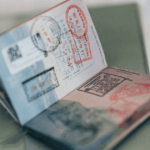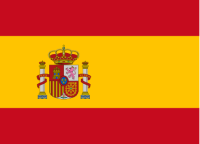1. Introduction
New Zealand attracts migrants from all over the world. Its population comprises approximately 27% foreign-born individuals, one of the highest rates among OECD countries. Migrants are drawn to New Zealand for its high standard of living, which consistently ranks in the top 10 on the Global Peace Index, which reflects its safety and stability.
Definition & Key Criteria of Permanent Residency (PR) in New Zealand
Permanent residency in New Zealand confers the privilege to live, work, and study indefinitely, bestowing upon holders nearly all the rights New Zealand citizens enjoy. This includes access to state healthcare and public education. However, unlike citizens, permanent residents are only eligible to vote once they achieve citizenship status.
To apply for permanent residency, individuals must have held a resident visa for at least two years. This qualification allows permanent living in New Zealand and unlimited travel into and out of the country.
Importance of Understanding the Challenges and Requirements for Securing PR
Understanding the process is essential as over 30,000 people annually receive permanent residency in New Zealand, yet many more apply. Navigating this competitive process successfully requires thorough preparation and an in-depth understanding of the specific criteria and documentation needed.
2. Overview of Permanent Residency Pathways

In New Zealand, there are several pathways through which individuals can achieve permanent residency, each tailored to meet specific needs and qualifications.
Resident Visa Applications Accepted (Fiscal Year – July to June)
- FY 22-23 (Until Mar ’24): 38,995
- FY 21-22: 48,478
- FY 20-21: 240,168
- FY 19-20: 57,648
- FY 18-19: 50,240
Skilled Migrant Category
The Skilled Migrant Category remains a primary route for skilled workers aiming to settle in New Zealand. It involves a points-based system, with the current threshold for an Expression of Interest typically standing at around 7 points. This threshold adjusts according to the evolving needs of New Zealand’s labour market.
Eligibility Criteria:
- Applicants must be 55 years or younger.
- Must meet health and character standards.
- Requires a job or job offer in an area of skill shortage in New Zealand.
Business and Investor Visas
These visas are crucial for investing in New Zealand, significantly benefiting the national economy.
Eligibility Criteria:
- Minimum investment of NZD 3 million for Investor 2 Visa or NZD 10 million for Investor 1 Visa over three years.
- Demonstrable business experience relevant to the investment.
- A comprehensive business proposal if applying under the Entrepreneur category.
For more information, refer to our detailed Active Investor Plus Visa page.
Residence from Work Visa
This pathway highlights the transition of approximately 5,000 workers from temporary to permanent residency annually, underscoring its role in retaining valuable international skills within the New Zealand economy.
Eligibility Criteria:
- Must have been employed in New Zealand for at least 24 months on a work to residence visa.
- Employment must be with an accredited employer(AEWV) who has offered a permanent or long-term position.
- Applicants must continue to meet health and character requirements.
3. Application Process for Permanent Residency
Expression of Interest (EOI)
- Applicants must first submit an Expression of Interest detailing their qualifications, work experience, and other personal information. This step is crucial as it determines whether they meet the preliminary criteria for PR consideration.
Receiving an Invitation to Apply (ITA)
- Suppose the EOI scores are above the threshold and the applicant is selected from the pool. In that case, the applicant receives an Invitation to Apply for permanent residency.
- Only about 30% of those who submit an EOI are expected to receive an ITA, reflecting the competitive nature of the process.
Documentation and Application Submission
- Once an ITA is received, applicants have four months to compile and submit a complete application and all required supporting documentation, including medical exams and police clearances.
- The documentation must comprehensively support the claims made in the EOI, such as proof of skilled employment, qualifications, and partnership status.
Assessment and Decision
- After submission, applications undergo a detailed assessment by Immigration New Zealand officials. This process includes verification of all documentation and may involve interviews or additional information requests.
- The assessment phase can take 6 to 12 months, depending on the case’s complexity and the application’s completeness.
Expected Timelines for Each Stage
- Expression of Interest (EOI): Indefinitely in the pool until selected.
- Invitation to Apply (ITA): Must respond within four months.
- Documentation Preparation and Submission: Up to four months to submit after receiving ITA.
- Assessment and Decision: Typically 6 to 12 months.
4. Critical Challenges in Obtaining Permanent Residency
Tight Eligibility Criteria
- The points-based system for the Skilled Migrant Category requires applicants to accumulate enough points for employment, experience, and qualifications.
- The points threshold has fluctuated over the past five years, reflecting changing priorities and needs in New Zealand’s labour market.
Changing Immigration Policies
- New Zealand’s immigration policies can change without much notice, affecting those in the middle of the PR application process. For instance, recent changes have prioritized high-demand skills and regions experiencing critical shortages.
- These changes can impact applicants who have been eligible under previous rules but are disadvantaged under new criteria.
Labor Market Tests
- For many work-related residency pathways, applicants must prove that no suitable New Zealand citizen or resident can fill the job position. This involves employers conducting genuine attempts to recruit locally.
- The labour market test can be a significant hurdle, especially in industries with a subtle balance between demand and available local expertise.
Health and Character Requirements
- Applicants must meet stringent health and character requirements. This includes comprehensive medical examinations to ensure they do not burden New Zealand’s public health system.
- Police clearance certificates are required from every country where an applicant has lived for 12 months or more over the last ten years. Failure to meet these requirements can result in the PR application being denied.
5. Common Mistakes to Avoid in the PR Application
Incomplete or Inaccurate Applications
- Many applications are delayed or rejected due to incomplete forms or inaccurate information. Approximately 10% of all initial applications face issues due to errors in the data provided.
- Common mistakes include missing dates, incorrect personal information, and failing to answer all questions thoroughly and truthfully.
Failing to Update Information Following Changes in Circumstances
- It is crucial to inform Immigration New Zealand of any changes in your circumstances, such as a new job, change in marital status, or a new address. Failure to update this information can lead to complications in the application process, as 5% of declined applications are due to discrepancies between current circumstances and the information held by immigration authorities.
Underestimating the Importance of Supporting Documents
- Supporting documents are vital to verify the information within the application. These documents include work references, proof of relationship, and financial statements.
- Underestimating this requirement often leads to insufficient evidence being provided, which accounts for approximately 15% of the reasons for initial application delays.
6. Tips for Success
Strategies to Enhance Eligibility
- Improving language skills is critical, as a higher level of English proficiency can increase your points in the application process. Language proficiency directly influences about 20% of the points in a typical skilled migrant application.
- Gaining local work experience is highly beneficial as it demonstrates your ability to contribute to the New Zealand economy. It can also provide additional points or satisfy specific visa criteria.
Importance of Thorough Preparation and Early Application
- Starting the application process early allows ample time to gather all necessary documents and ensure all information is accurate and complete.
- Thorough preparation can reduce the risk of delays and increase the likelihood of a successful application. Statistics show that applications prepared and reviewed by immigration advisers have a 5% higher acceptance rate than those prepared independently.
Networking and Community Involvement
- Engaging with community groups and professional networks in New Zealand can provide support and valuable contacts that help find employment and understand local norms and cultural nuances.
- Active participation in community events and professional organizations can also demonstrate your commitment to integrating into New Zealand society, a factor considered in some residency applications.
7. Case Studies
Successful Application
- A case study of a software developer from India who gained permanent residency through the Skilled Migrant Category. After improving his English language skills and securing a job offer from a tech company in Auckland, he successfully navigated the PR Visa process with the help of a licensed immigration adviser.
Unsuccessful Application
- An example of an engineer from South Africa whose application was unsuccessful due to the lack of proper documentation proving his work experience and qualifications. His case highlights the importance of meticulously prepared supporting documents.
Insights from Individuals
- Feedback from various applicants underscores the value of accurate and complete applications, the need for early and thorough preparation, and the benefits of engaging with community networks and professional groups in New Zealand.
8. Conclusion
Obtaining permanent residency can be complex and challenging, requiring meticulous preparation and patience. Prospective applicants must thoroughly understand the requirements and prepare their applications carefully. Given the complexities involved, seeking professional advice from licensed immigration advisers or legal experts is highly recommended. This can significantly enhance the chances of a successful application by ensuring that all procedural requirements are met and the application is as robust as possible.
References & Additional Resources
For more information and guidance on the process of obtaining permanent residency in New Zealand, the following resources can be invaluable:
- Licensed Immigration Advisers—Connect with experienced licensed immigration advisers; they will help you navigate the complexities of the Permanent Residency process.
- Immigration New Zealand (INZ): The official Immigration New Zealand website is the primary source for up-to-date information on visa types, requirements, application processes, and policy changes.
- Citizens Advice Bureau: The Citizens Advice Bureau offers free, confidential advice on various topics, including immigration. They can be a helpful resource for understanding your rights and options in New Zealand.
About ICL Immigration
ICL Immigration, based in Auckland, is an established licensed immigration adviser and immigration consultant with over 20 years of experience and a remarkable 97% approval rate. We’ve helped over 1,000 immigrants realise their New Zealand settlement dreams.
We specialise in various visa services, including student, residency, work visas and business-related services like employer accreditation. We ensure personalised solutions for individuals and businesses aiming to navigate New Zealand’s immigration landscape successfully.















